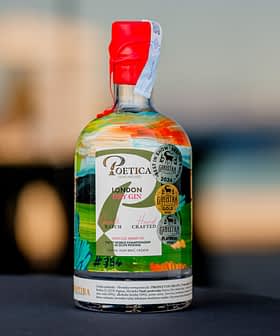Daily Olive Oil Consumption Linked to Lower Dementia Death Risk, Study Finds

A study from Harvard University found that consuming at least seven grams of olive oil daily is associated with a 28 percent lower risk of dementia-related death. The research, based on data from over 90,000 US adults, also indicated that replacing mayonnaise and margarine with olive oil may lower the risk of dementia-related death. The study suggested that olive oil may have a beneficial effect on brain health due to its antioxidant properties and potential indirect benefits on cardiovascular health.
A new study from Harvard University has found that consuming half a tablespoon of olive oil daily is associated with a lower risk of dementia-related death.
The researchers examined data collected from 92,383 United States adults participating in the Nurses’ Health Study and Health Professionals Follow-Up Study over 28 years.
They found that daily consumption of at least seven grams of olive oil was associated with a 28 percent lower risk of dementia-related death compared with those who never or rarely consumed olive oil.
See Also:Health NewsThe association between olive oil consumption and Alzheimer’s disease, the most common form of dementia, has been long established. However, it is increasingly of interest to researchers as the prevalence of dementia continues to rise.
World Health Organization data show that more than 55 million people had dementia worldwide in 2023. Separate research published in The Lancet predicted that dementia rates are set to triple by 2050.
According to Scott Small, the director of Columbia University’s Alzheimer’s Disease Research Center, dementia impacts the deepest part of the brain in its final stages, which can inhibit bodily functions, including heart rate and breathing.
While respiratory or urinary tract infections are frequent causes of death in late-stage dementia patients, those receiving the highest quality care essentially die from accumulated brain cell death.
The study also examined the association between total olive oil consumption and diet quality, including adherence to the Mediterranean diet and the Alternative Healthy Eating Index.
The researchers found that participants with the highest olive oil intake had a lower risk of dementia-related death regardless of their adherence to either diet. “This highlights a potentially specific role for olive oil,” the researchers wrote.
“Still, the group with both high Alternative Healthy Eating Index scores and high olive oil intake exhibited the lowest dementia mortality risk, suggesting that combining higher diet quality with higher olive oil intake may confer enhanced benefit,” they added.
The study also investigated the impact of replacing other dietary fats with olive oil.
The researchers found that replacing five grams of mayonnaise with the equivalent amount of olive oil was associated with a 14 percent lower risk of dementia-related death. Meanwhile, replacing five grams of margarine with olive oil was associated with an eight percent lower risk.
No statistically significant difference was observed when replacing butter or other vegetable oils with olive oil.
“These findings provide evidence to support dietary recommendations advocating for the use of olive oil and other vegetable oils as a potential strategy to maintain overall health and prevent dementia,” the researchers wrote.
However, they acknowledged that at the time of the study, mayonnaise and margarine contained high levels of hydrogenated trans-fats, which are strongly associated with cardiovascular disease, type 2 diabetes and dementia. In 2020, U.S. health authorities banned manufacturers from adding partially hydrogenated oils to foods.
Anne-Julie Tessier, the study’s lead author and a research associate in nutrition at Harvard’s T.H. Chan School of Public Health, told Olive Oil Times that the researchers believe antioxidants found in olive oil may play a role in the association between its consumption and lower risk of dementia-related death.
“We think that some compounds with antioxidant activity in olive oil can cross the blood-brain barrier, potentially having a direct effect on the brain,” she said. “It is also possible that olive oil has an indirect effect on brain health by benefiting cardiovascular health, although we accounted for such factors in our models, and the associations remained.”
The study population included 60,582 women from the Nurses’ Health Study and 31,801 men from the Health Professionals Follow-Up Study with an average age of 56 and who were free of cardiovascular disease and cancer at baseline. Olive oil consumption was assessed every four years using a food frequency questionnaire.
“This involved asking participants a range of questions about how often they consumed olive oil, whether it was for salad dressings, cooking purposes or added to other foods,” Tessier said.
“However, we did not have data allowing us to differentiate the type of oil used,” she added. “Thus, we observed an association regardless of the type of olive oil used, whether it was virgin or not, and whether it was used for cooking, in salad dressings or added to other foods.”
One of the study’s main strengths was the analysis of several subgroups, including individuals with the apolipoprotein ε4 (APOE ε4) genotype. Individuals with homogeneous APOE ε4 alleles are five to nine times more likely to die of dementia.
“Exploratory subgroup analyses showed associations between higher olive oil intake and lower risk of dementia-related mortality across most subgroups,” the researchers wrote. “No statistically significant associations were found in participants with a family history of dementia, living alone, using a multivitamin and in non – APOE ε4 carriers.”
While the study’s other strengths included the long follow-up period, large sample size and high number of dementia death cases, the researchers acknowledged its limitations.
“Our study cannot establish a causal effect of olive oil because it is not an intervention study,” Tessier said.
The researchers also wrote that the study population was not representative of the wider public in the United States since it mostly comprised healthcare professionals, the vast majority of whom were older and white.
Tessier said future studies should provide olive oil to participants to assess its impact on cognitive function and see if a direct effect can be observed.
“However, it is important to note that for most dementia types, the onset is gradual, and the progression of the disease is slow,” she concluded. “Because of this, we must wait a long time for the cases to occur. Dementia and dementia mortality can hardly be studied in a design other than observational.”









